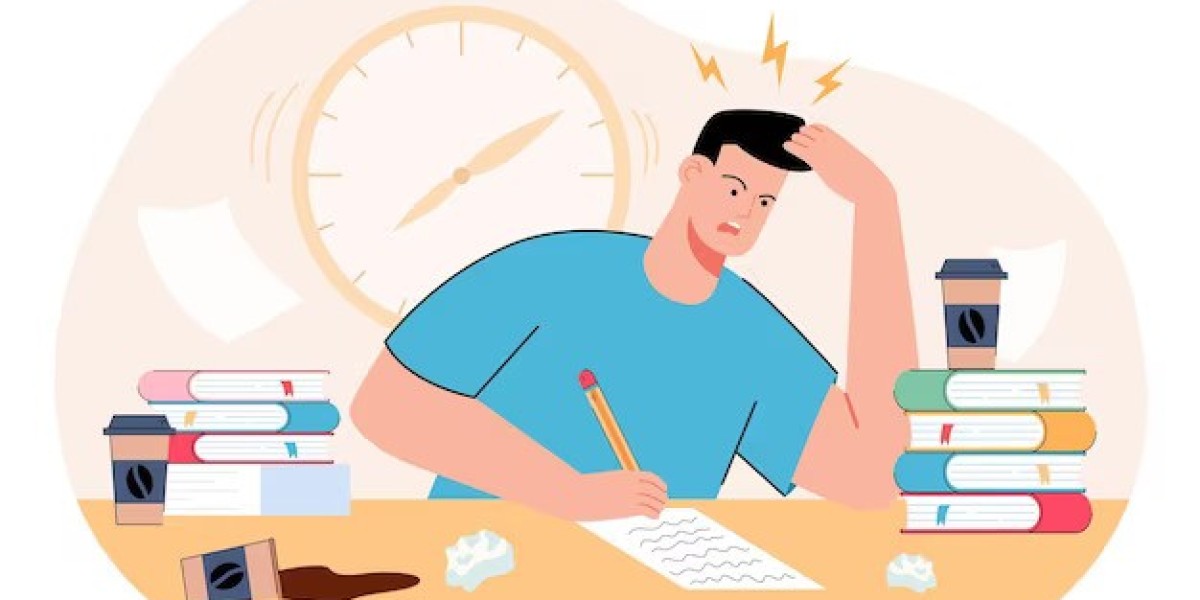Academic burnout is when students feel overwhelmed and exhausted from the pressures of school. It happens when the demands of classes, assignments, and exams become too much to handle. Symptoms may include lack of motivation, difficulty concentrating, and feelings of frustration or hopelessness. Academic burnout can affect students of all ages and levels of education.
Is Academic burnout serious?
Yes, academic burnout is a serious issue that can have significant consequences on both mental and physical health. It can lead to feelings of exhaustion, anxiety, depression, and a decreased sense of accomplishment. Academic burnout may also negatively impact academic performance, relationships, and overall well-being. If left unaddressed, it can escalate into chronic stress, affect sleep patterns, and impair cognitive function.
What Causes Academic Burnout?
To overcome academic burnout and stay resilient, seek support from professional therapists, such as "Online therapists in India”, for help and guidance.
- Excessive Workload: Overwhelming amount of coursework, assignments, and exams.
- High Expectations: Pressure to achieve academic excellence from oneself, parents, or educators.
- Perfectionism: Striving for flawlessness in academic performance and fearing failure.
- Lack of Control: Feeling powerless over one's academic workload or schedule.
- Poor Time Management: Difficulty managing time effectively to balance academic and personal commitments.
- Social Comparison: Constantly comparing oneself to peers academically, leading to feelings of inadequacy.
- Lack of Support: Limited emotional or academic support from teachers, family, or peers.
- Burnout Cycle: Persistent stress without adequate rest or recovery periods.
- Monotonous Routine: Boredom and disengagement from repetitive academic tasks.
- Unrealistic Goals: Setting unattainable academic objectives or standards.
- Personal Issues: Dealing with personal challenges such as family problems or health issues.
- Financial Stress: Struggling to afford education costs or managing part-time work alongside studies.
- Perceived Inequity: Feeling unfairly treated or disadvantaged in academic settings.
- Unclear Expectations: Confusion or ambiguity regarding academic requirements or goals.
- Lack of Interest: Loss of passion or interest in academic subjects or career paths.
Academic burnout is a complex issue and the specific causes can vary from person to person. However, by understanding these common factors, you can identify potential triggers and take steps to prevent burnout.
How to Overcome Academic Burnout?
To bounce back from academic burnout and safeguard your well-being, consider seeking guidance from professional therapists specializing in "CAREER ISSUES Counseling."
- Prioritize Self-Care: Make sure to get enough sleep, eat healthily, and exercise regularly to maintain physical and mental well-being.
- Divide Work into Manageable Steps:- To keep from being overwhelmed, break up jobs into smaller, more doable activities.
- Set Realistic Goals: Set achievable academic goals and celebrate small victories along the way.
- Take Regular Breaks: Schedule short breaks during study sessions to rest and recharge.
- Practice Time Management: Use a planner or calendar to organize your schedule and allocate time for studying, relaxation, and other activities.
- Seek Support: Talk to teachers, counselors, or peers for academic assistance or emotional support.
- Communicate with Professors: If you're struggling with coursework, don't hesitate to reach out to your professors for help or clarification.
- Establish Boundaries: Learn to say no to extra commitments that add unnecessary stress to your workload.
- Find a Study Routine: Create a consistent study routine that works for you and stick to it.
- Limit Distractions: Minimize distractions such as social media or electronic devices while studying to maintain focus.
- Practice Relaxation Techniques: Incorporate relaxation techniques like deep breathing or mindfulness meditation to reduce stress.
- Take Care of Your Physical Health: Make sure to eat nutritious meals, stay hydrated, and engage in regular physical activity to support overall well-being.
- Reward Yourself: Treat yourself to small rewards or breaks after completing tasks or reaching milestones.
- Stay Positive: Focus on your strengths and accomplishments rather than dwelling on setbacks or failures.
- Seek Balance: Find a balance between academics and other aspects of your life, including hobbies, socializing, and downtime.
- Know When to Ask for Help: If academic burnout persists despite your efforts, don't hesitate to seek professional help from a counselor or therapist.
Conclusion
By implementing these strategies and prioritizing your well-being, you can Overcome academic burnout and rediscover your passion for learning.



